Celeb Society

What are the positive effects of celebrity influence on society ?
Celebrities wield significant influence that extends beyond their areas of expertise, and this influence can have both positive and negative impacts on society. The positive effects include raising awareness on important issues, promoting education, cultural exchange, economic growth, sustainable living, fashion trends, and driving social change through activism. Celebrities can use their platforms to bring attention to global concerns, promote healthy lifestyles, encourage mental health discussions, support literacy programs, inspire STEM pursuits, showcase cultural diversity, boost local businesses, foster entrepreneurship, advocate for eco-friendly practices, diversify beauty standards, engage in political conversations, and strengthen community bonds. However, with great influence comes great responsibility; celebrities should strive to use their platform thoughtfully and constructively for the betterment of society.

How can we promote diversity and inclusion in a multicultural society ?
This topic discusses strategies to promote diversity and inclusion in a multicultural society, including education, legislation, community engagement, media representation, business leadership, and personal actions.
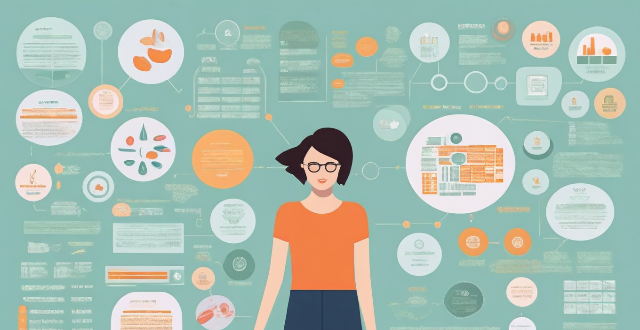
What are the long-term effects of poor immigrant integration on society ?
This article discusses the long-term effects of poor immigrant integration on society, including social exclusion, economic consequences, and cultural impacts such as loss of cultural heritage and increased tensions between ethnic groups. It emphasizes the importance of prioritizing immigrant integration efforts to ensure that immigrants are fully included in all aspects of society.
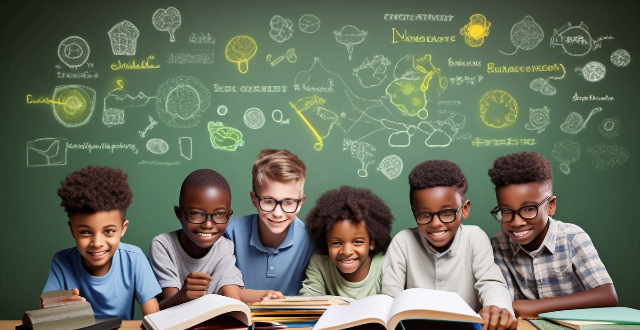
How does a multicultural society impact the education system ?
In a multicultural society, the education system is influenced in various ways. One of the most obvious impacts is diversity in classrooms which can enrich the learning environment and help students develop empathy and understanding for people who are different from themselves. The curriculum may need to be adapted or changed to accommodate the needs of a diverse student population. Language barriers can also be a challenge for both students and teachers. Educators need to be culturally sensitive and aware of the diverse backgrounds of their students. Parental involvement in education can be complex in a multicultural society. By embracing diversity in the classroom, the education system can create an inclusive and enriching learning environment for all students.

How do inclusive policies benefit society as a whole ?
Inclusive policies are designed to promote equality, fairness, and social cohesion by eliminating barriers and discrimination. These policies benefit society as a whole by ensuring equal access to resources, services, and opportunities for all individuals regardless of their background, abilities, or circumstances. In addition to promoting equality and fairness, inclusive policies also enhance social cohesion by fostering a sense of belonging and mutual respect among different groups within society. This leads to reduced discrimination, increased tolerance, and strengthened community bonds. Inclusive policies also have positive economic outcomes by expanding the talent pool, reducing poverty, and stimulating consumer spending. Furthermore, these policies foster innovation and creativity by providing diverse perspectives, encouraging risk-taking, and promoting collaboration. Finally, inclusive policies can enhance a country's global competitiveness by attracting talent, improving international relations, and driving economic growth.

What are the advantages and disadvantages of living in a multicultural society ?
Advantages and Disadvantages of Living in a Multicultural Society The advantages of living in a multicultural society include cultural diversity, enhanced understanding and tolerance, economic benefits, language learning, and social inclusivity. These benefits enrich daily life by exposing individuals to different ways of thinking, art forms, cuisines, and festivals, fostering greater understanding and acceptance of others, attracting a skilled global workforce, providing natural opportunities to learn new languages, and promoting better access to education, healthcare, and other social services for all members of the community. However, living in a multicultural society also has its disadvantages, such as cultural conflict, integration challenges, identity confusion, potential for segregation, and policy challenges. Differences in cultural values and norms can sometimes lead to misunderstandings and conflicts, newcomers might face challenges integrating into the mainstream culture, individuals may struggle with their sense of identity, communities might form based on shared ethnicity or language reducing interaction between different groups, and managing a multicultural society requires complex policy-making to address the needs of diverse populations. Overall, living in a multicultural society requires thoughtful management and open-mindedness to navigate the complexities of diverse populations successfully while enjoying the benefits it brings.

How can we celebrate and embrace cultural differences in a multicultural society ?
In a multicultural society, celebrating and embracing cultural differences is crucial for fostering understanding, respect, and harmony. To achieve this, it's important to educate oneself and others about different cultures, participate in cultural events, promote diversity in media and entertainment, advocate for inclusivity in education and workplaces, engage in open dialogue, practice empathy and active listening. These strategies can help create a more inclusive and harmonious multicultural society where everyone feels valued and respected for their unique cultural contributions.

What are the benefits of social inclusion for individuals and society as a whole ?
Social inclusion benefits individuals and society by promoting equality, diversity, and participation. Individuals experience enhanced quality of life, greater opportunities, improved mental health, increased self-esteem, and strengthened social support networks. Society benefits from economic growth, reduced poverty and inequality, improved public services, enhanced social cohesion, increased civic engagement, promotion of human rights, a positive global image, and intergenerational equity.

In what ways does education empower women socially and politically ?
Education is crucial for women's empowerment, enabling them to challenge societal norms and contribute more fully to society. It fosters increased awareness, improved socioeconomic status, and enhanced social relationships. Education also leads to greater political participation, policy influence, and promotion of gender equality. Overall, education enriches society by improving the lives of women and contributing to a more equitable world.

How does scientific literacy among women impact society ?
Scientific literacy among women has significant benefits for society, including improved health outcomes, increased economic opportunities, enhanced environmental stewardship, greater participation in policy decisions, and promotion of gender equality. However, challenges such as lack of access to quality education, gender biases in STEM fields, limited role models, and workplace discrimination must be addressed to fully realize these benefits.

How can writers use sports as a metaphor for larger societal issues ?
The text provides a guide on how writers can use sports as a metaphor to explore larger societal issues. The playing field in sports is likened to a microcosm of society, where fairness, equality, and justice are examined. Teamwork and collaboration in sports are used to discuss cooperation, diversity, and inclusion in society. The competitive nature of sports serves as a metaphor for the drive for success, ambition, perseverance, and the cost of success. Rules and ethics in sports are compared to societal laws and ethical standards, discussing corruption, cheating, and the importance of maintaining integrity. Finally, overcoming adversity in sports is used as a platform for stories of hope and resilience in the face of societal challenges.
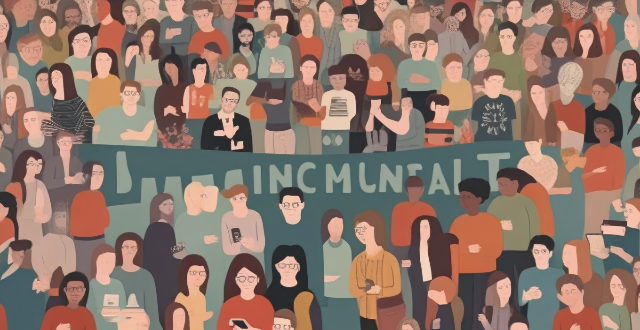
What role does education play in helping immigrants integrate into society ?
Education is crucial for immigrants' integration into society, providing language skills, cultural understanding, access to opportunities, and social networking.

What are the long-term effects of educating girls on society ?
The long-term effects of educating girls are numerous and far-reaching. They include improved health outcomes, economic growth, gender equality, and social change. Educated women are more likely to seek prenatal care, give birth in a medical facility, and utilize family planning methods, leading to a reduction in maternal mortality rates and infant mortality rates. Additionally, educated women are more likely to participate in the labor force, start their own businesses, and earn higher wages, leading to economic growth. Educating girls also promotes gender equality by challenging traditional gender roles and demanding equal treatment in all aspects of life. Finally, educating girls can lead to social change by breaking the cycle of poverty and promoting policies that benefit all members of society.

How does cultural fusion affect society's development ?
Cultural fusion is the process whereby different cultures influence each other over time. This phenomenon can have a significant impact on society's development in various ways. In this article, we will explore how cultural fusion affects society's development and discuss some examples of its effects. One of the most obvious benefits of cultural fusion is that it enhances diversity within a society. When different cultures come together, they bring with them unique perspectives, traditions, and values that can enrich the overall culture. This can lead to increased creativity, innovation, and social progress. Another benefit of cultural fusion is that it promotes tolerance and understanding among people from different backgrounds. By learning about and experiencing other cultures, individuals become more open-minded and accepting of differences. This can help to reduce prejudice, discrimination, and conflict within society. Cultural fusion also plays a crucial role in facilitating globalization. As cultures interact and exchange ideas, goods, and services, they become more interconnected and interdependent. This can lead to increased economic growth, trade opportunities, and international cooperation. While cultural fusion can bring many benefits to society, it also presents some challenges that must be addressed. These include loss of cultural identity, erosion of cultural heritage, and cultural imperialism. There are many examples of cultural fusion throughout history and around the world today. Some notable examples include food culture, music culture, and fashion culture.

Why is sustainable investing important ?
Sustainable investing is crucial for the future of our planet and society. It considers environmental impact, social responsibility, long-term returns, risk management, and ethical considerations of companies. By investing in sustainable companies, investors can help combat climate change, create a more equitable society, and achieve long-term financial returns. Sustainable investing also aligns with many people's personal values and ethics.

What role do sports play in promoting diversity and inclusion in society ?
The text discusses the various ways in which sports can contribute to promoting diversity and inclusion. This includes breaking down stereotypes and prejudices, highlighting achievements of underrepresented groups, providing equal opportunities, fostering cultural exchange, encouraging respect and fair play, and promoting health and wellness for all. It emphasizes that sports serve as a powerful vehicle for promoting diversity and inclusion in society by breaking down barriers, providing equal opportunities, fostering cultural exchange, encouraging respect and fair play, and promoting health and wellness for all.

How do international students contribute to the host country's economy and society ?
International students significantly contribute to their host countries' economy and society through tuition payments, consumer spending, workforce participation, entrepreneurship, cultural exchanges, educational enrichment, global networking, and community engagement. However, challenges such as integration efforts and sustainable policies must be considered to maximize these benefits.

How can businesses adapt to a multicultural society to better serve their customers ?
Businesses must adapt to a multicultural society by understanding diverse customer needs, offering cultural competency training, using diverse representation in marketing, tailoring products for different cultures, ensuring accessibility and inclusivity, engaging with communities, and continuously improving based on feedback.
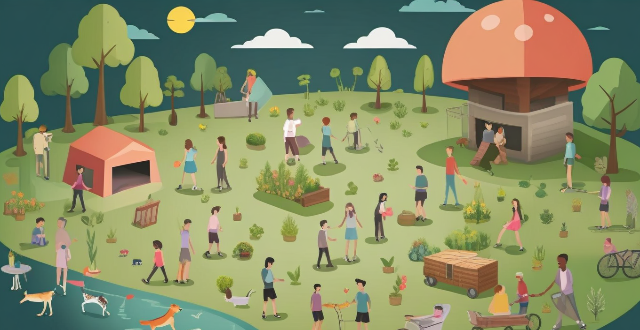
What is a multicultural society and how does it benefit individuals and communities ?
A multicultural society is an environment where people from diverse cultural backgrounds coexist, sharing and respecting each other's beliefs, traditions, and practices. It benefits individuals by enhancing their cultural awareness, promoting personal growth, and providing career opportunities. For communities, it promotes social cohesion, economic prosperity, cultural exchange, and improved public services. Overall, multicultural societies create a more harmonious and prosperous world for all.

How can civil society organizations contribute to building resilience against climate conflicts ?
Civil society organizations (CSOs) are essential in building resilience against climate conflicts through advocacy, awareness-raising, capacity-building, and community-based adaptation. They advocate for policies that promote climate resilience, raise awareness about climate change impacts, build community capacity to cope with climate stressors, and support community-led adaptation initiatives. CSOs collaborate with various stakeholders to ensure climate change is addressed in national and international agendas, disseminate information on climate risks and adaptation strategies, provide technical assistance and resources for locally-led projects, and engage in livelihood diversification, food sovereignty, and ecosystem conservation efforts. By working together, CSOs contribute to a more equitable and sustainable future.

How can we ensure that climate adaptation strategies are equitable and benefit all members of society ?
Ensuring equitable climate adaptation strategies is crucial to protect vulnerable groups and future generations from disproportionate impacts of climate change. Key considerations include recognizing inequalities, involving affected communities in decision-making, fairly distributing costs and benefits, building capacity through education and skills development, mainstreaming equity into policies, and focusing on long-term sustainability.
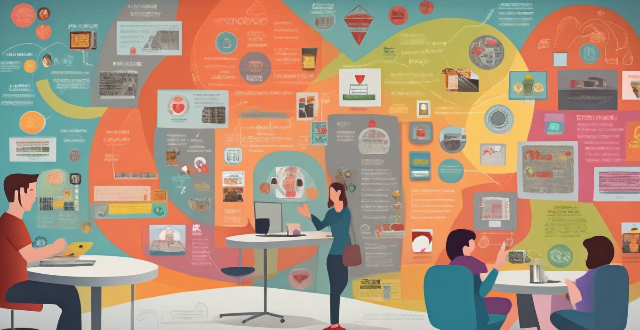
What are the challenges of living in a multicultural society and how can they be overcome ?
Living in a multicultural society presents challenges like language barriers, cultural differences, and social isolation. Overcoming these involves strategies such as education, celebrating diversity, fostering inclusivity, building intercultural competence, and supporting identity development.

How will these education policy updates impact the future of education in our society ?
Education policy updates may increase access to education, emphasize STEM education, and improve student outcomes.

What role do governments play in promoting cultural understanding and acceptance in a multicultural society ?
Governments can promote cultural understanding and acceptance in multicultural societies by implementing policies and programs that foster diversity, inclusion, and respect for different cultures. They can launch education and awareness campaigns, enact legislation and policies, engage with communities and partner with NGOs, and promote international cooperation to create an environment where diversity is celebrated, respected, and embraced.

Can celebrity influence lead to negative consequences, such as promoting unhealthy lifestyles or unrealistic body images ?
Celebrities have a significant impact on society, and their influence can lead to both positive and negative consequences. One of the negative consequences is promoting unhealthy lifestyles or unrealistic body images. This essay will discuss how celebrity influence can lead to such negative outcomes and suggest ways to mitigate them. To address the issue of promoting unhealthy lifestyles, celebrities should be more responsible in endorsing products or behaviors that can harm their fans' health. Media outlets should also focus on reporting accurate information about celebrities' lives rather than glorifying their unhealthy habits or unrealistic body images. To combat the promotion of unrealistic body images, celebrities should avoid heavily edited photos and promote realistic beauty standards. Education about the dangers of unrealistic beauty standards can help young people make informed decisions about their own bodies. Overall, by taking steps to educate young people, promote responsible media coverage, encourage positive role models, and establish regulations and guidelines, we can create a healthier society where celebrities' influence is used for good.

What is the role of celebrities in shaping popular culture ?
This text discusses the role of celebrities in shaping popular culture and their influence on various aspects such as fashion, music, social issues, and internet culture. The article highlights how celebrities set trends in fashion and style, introduce new genres and themes in music and entertainment, raise awareness about social issues, and create memes and viral content online. It concludes by emphasizing the importance of recognizing the power of celebrities and considering their impact on society.

How does technology contribute to the growth and development of a multicultural society ?
Technology has played a pivotal role in the growth and development of multicultural societies. It has facilitated communication, understanding, and collaboration across diverse cultural backgrounds, leading to a more inclusive and interconnected world. The article explores how technology contributes to the growth and development of a multicultural society through enhanced communication, access to information, collaboration and partnership, and cultural preservation and promotion.

How do celebrities influence public opinion and behavior ?
Celebrities have a significant impact on public opinion and behavior through their roles as role models, trendsetters, opinion leaders, product endorsers, and charitable figures. They can inspire positive values, set trends, voice opinions on social issues, create trust in products, and raise awareness for charitable causes. However, it is important for celebrities to use their influence responsibly for the benefit of society.

What are some common hobbies and interests of celebrities ?
Celebrities, just like regular people, have their own hobbies and interests that help them relax, unwind, and express themselves outside of their professional lives. These activities range from music, sports, art and design, traveling, reading and writing, cooking and baking, philanthropy and volunteering, gaming, fashion and beauty, to gardening and outdoor activities. By engaging in these hobbies, celebrities can escape the pressures of fame and find joy in everyday life.

How do celebrities choose the products they endorse ?
Celebrities choose the products they endorse based on personal preferences, financial considerations, market trends, ethical standards, and legal obligations. They prefer endorsing products that align with their personal brand image and have a good reputation. Financial aspects such as compensation and potential profit-sharing agreements also play a crucial role in endorsement deals. Celebrities consider whether the product is popular among their target audience and keep an eye on market trends to stay relevant. They are cautious about endorsing products with questionable practices and prefer supporting brands that uphold ethical standards or have a positive social impact. Before agreeing to endorse a product, celebrities carefully review contract terms and consider potential liability concerns.